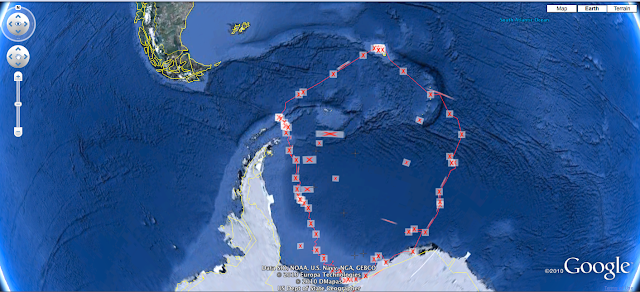Starshine Bubbles on Storybird
This is a test of the system, if your computer melts, I am in no way responsible for the results. Have a good day!
Woody's Weekly
Follow the meandering path of a middle school science teacher navigating the world of Web 2.0.
Tuesday, June 15, 2010
Saturday, June 12, 2010
Out of my mind...
School's out and I'm supposed to be relaxing on a beach somewhere, sipping on a margarita. At least that's what I have been told. It seems that I have a slight mental disorder that makes me think that I need to undertake two, only slightly related, projects instead of doing the said relaxing.
I am participating in the Southern Colorado Writing Project in Pueblo. This is one of the most enjoyably intense classes that I have done. Writing is not a comfort area for me. I am writing more every day than I probably did in a month. Even just a week in, I am ever so glad that I undertook this.
It just happened to be at the same time I'm working on a master's from Full Sail. Where the writing project is just a month of intensity, FS is month after month of the intensity.
One thing that I have noticed is that I am not just getting upset and throwing up my hands. Oh, don't get me wrong there is some major upset going on. But I have gotten much better and pinpointing the problem and working out a solution than I would have in the past.
What doesn't kill you, only makes you stronger.
I am participating in the Southern Colorado Writing Project in Pueblo. This is one of the most enjoyably intense classes that I have done. Writing is not a comfort area for me. I am writing more every day than I probably did in a month. Even just a week in, I am ever so glad that I undertook this.
It just happened to be at the same time I'm working on a master's from Full Sail. Where the writing project is just a month of intensity, FS is month after month of the intensity.
One thing that I have noticed is that I am not just getting upset and throwing up my hands. Oh, don't get me wrong there is some major upset going on. But I have gotten much better and pinpointing the problem and working out a solution than I would have in the past.
What doesn't kill you, only makes you stronger.
Monday, May 24, 2010
BP12_2010053_1MinuteMessage
If you would like to look at the published book that was used in this One Minute Message it can be found on Storybird.
Sunday, May 23, 2010
BP9_2010053_Web2.0Tools
 Google Earth
Google EarthGoogle Earth is a web application that allows teachers across the curriculum to bring topics to life. In the case of the example that I have place here, Earnest Shackleton's Antarctic Expedition, it tracks the time that they were stranded in the ice off of Antarctica. As the class reads through Shackleton's journal of the expedition they can record specific dates and locations of events.
Accessing Shackleton's journal will connect a class to several different parts that are key to understanding. The scientific knowledge such as the forces exerted by ice on the ship, or climactic conditions and how they changed during the time they were in the ice. Again, the details in the journal can be critical for what they experienced, but the understanding comes with time and discussion.
Possible Questions
How did the sailors keep track of their location? How were they able to survive so long on the ice without being resupplied? What did it take for them to finally get out of the ice? Why did no members of the expedition die?
This sample of Google Earth shows the Shakleton Expedition and the territory they covered during their time near Antarctica. Teachers or students can add informational tags to each point to explain things that had happened. They can even add information about geological features or animal behaviors to the story.
Monday, May 17, 2010
BP8_2010052_1MinuteMessage
I am quite disappointed in this effort, most of what I wanted to use could not be uploaded. I will do better this week and regain my stride.
Subscribe to:
Posts (Atom)





